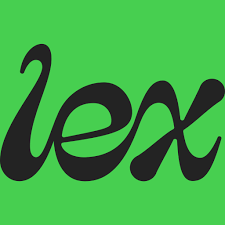
One thing that is clear though is the niche of social media verticalized entities that target a specific demography or a hobby than start ups looking to build large platforms. In todays market, a platform with a tighter focus will have more potential because it allows for strong communities to be built. One of the recent social media app that have targeted a specific demography is Lex. Lex is a social app aimed at the LGBTQIA+ communities. At three years old now, Lex doesn’t look like the next Reddit, Tinder or Twitter, although its scope grows as more folks publicly identify as LGBTQIA+. On Apple’s U.S. charts, Lex ranks around No. 350 among iPhone social networking apps. Lex allows its users to find friends, roommates or events, all rooted in the queer space.

Another example is Twitch. Twitch is a platform for gamers to connect, stream video, and talk about games. Twitch has now expanded beyond its initial focus, and is now estimated to have 31 million daily active users. Many people could urge that gamers and people who identify as LGBTQIA+ make up quite large populations, but most “niche” communities generally tend to be bigger than they first appear. And there are many venture-backed companies seeing a lot of engagement from these so-called small groups. This same aspect has seen an increase in people flocking dating sites targeted at a specific community, music apps, movie apps, agricultural apps, technology apps, travel apps and many others just to get that specific satisfaction they are yawning for without being seen as or considered outcasts.
The chances of success of these new fleet of social media startups that are trying to target a specific demography or specific hobbies, are high and investors are competing across the world to invest or buy these ventures as their futures’ are bright. On the contrary, this is not conclude that the new fleet of social media startups that are trying to target everyone will fail. If these platforms don’t end up building the same appeal as Twitter or Instagram, they may still be able to find devoted communities to keep them going. Platforms like Twitter, Instagram, Facebook, Threads, TikTok and more are immensely popular, but they are in no way perfect. As people evaluate their relationship with social media among all the chaos, I think they will look for a better option — or options. For social media investors, it’s likely the future riches will be in the niches.

